#news
2017-11-10
ShuHuai(Whycat)
19:49:32
@junsuwhy has joined the channel
2017-11-16
Kuan-Ting
10:39:46
@kting has joined the channel
terrence
13:27:32
@terrence has joined the channel
2017-11-19
canadian_aaron
09:39:44
How mundane admin records helped open Finnish politics: An example of “impolite” transparency advocacy – Open Knowledge International Blog
https://blog.okfn.org/2017/11/16/how-mundane-admin-records-helped-open-finnish-politics-an-example-of-impolite-transparency-advocacy/
https://blog.okfn.org/2017/11/16/how-mundane-admin-records-helped-open-finnish-politics-an-example-of-impolite-transparency-advocacy/
Open Knowledge International Blog
This blogpost was jointly written by Aleksi Knuutila and Georgia Panagiotidou. Their bio’s can be found at the bottom of the page. In a recent blog post Tom Steinberg, long-term advocate of t…
canadian_aaron
10:13:47
世界银行对公开数据领域投资五年回顾 | The Data Blog
https://blogs.worldbank.org/opendata/ch/five-years-investments-open-data
https://blogs.worldbank.org/opendata/ch/five-years-investments-open-data
The Data Blog
下载PDF文档 今年是世界银行努力帮助有关国家启动实施其公开数据计划、发挥公开数据的作用惠及其国民的五周年。一份新报告洞悉了公开数据正如何造福有关国家、哪些战略奏效以及哪些战略尚待完善。 报告全面归纳了世行迄今为止资助的公开数据活动。五年来,世行为50多个国家的公开数据活动提供了技术和资金援助。据保守估计,源自各种来源的资金援助总额超过了5000万美元。很多情况下,世行资金均撬动了其它合作伙伴的支持,也撬动了国家和其它发展机构的联合赞助。就世行内部而言,统计能力建设信托基金一直是公开数据领域最大的资金来源,迄今已在16个国家资助实施了20多个项目,为多项区域和全球活动提供了6笔赠款。 用国家和行业公开数据向逾45国提供支持 世行以多种形式支持公开数据。截至目前,在国家和地方层面开展的45项公开数据准备度评估已完成,帮助提供了各界对公开数据的认知,催化了公共和私营部门努力在其国内推进公开数据动议。目前,公开数据准备度评估工具可用于商业、能源、交通等多个领域。世行对多种公开数据学习和知识产品进行了投资,其中包括数据认知课程和公开数据工具集;与其全球合作伙伴开展合作,对学术研究、区域会议以及公开数据动议实施工作提供了支持。报告还发现,这些初步努力催化了长期的项目投资(即国际复兴开发银行贷款和国际开发协会信贷),至少有14个国家的项目包含了公开数据动议实施子项目。
canadian_aaron
10:18:14
What’s the Difference Between “Civic Tech” and “GovTech”?
https://www.citizenlab.co/blog/civic-tech/whats-difference-civic-tech-govtech/
https://www.citizenlab.co/blog/civic-tech/whats-difference-civic-tech-govtech/
CitizenLab
GovTech, focused on optimising the efficiency of government's operations, is different from Civic Tech, which aims at connecting citizens. Discover how!
canadian_aaron
10:22:49
What’s New in Civic Tech: Participants Reflect on Code for America’s Brigade Congress Event
http://www.govtech.com/civic/Whats-New-in-Civic-Tech-Participants-Reflect-on-Code-for-Americas-Brigade-Congress-Event.html
http://www.govtech.com/civic/Whats-New-in-Civic-Tech-Participants-Reflect-on-Code-for-Americas-Brigade-Congress-Event.html
govtech.com
Plus, NYC Economic Development Corporation RFP aims to create city’s first cybersecurity accelerator; Startup in Residence Program unveils civic challenges for first nationwide cohort; Harvard’s Ash Center restructures flagship award program; CincyStat collaborates with local police on interactive crime dashboard; and Philadelphia picks internal departments for its new customer-centric design lab.
canadian_aaron
10:24:03
Can Blockchain Bring Voting Online?
http://www.govtech.com/data/GT-OctoberNovember-Securing-the-Vote.html
http://www.govtech.com/data/GT-OctoberNovember-Securing-the-Vote.html
govtech.com
Blockchain has the potential to bring online voting to the mainstream, but some experts worry security concerns outweigh its potential benefits.
canadian_aaron
10:24:34
When It Comes to Fixing Politics, Tech Needs a Reality-Check | Civicist
https://civichall.org/civicist/when-it-comes-to-fixing-politics-tech-needs-a-reality-check/
https://civichall.org/civicist/when-it-comes-to-fixing-politics-tech-needs-a-reality-check/
Civic Hall
A few months after the 2016 election, in a sterile conference facility in San Francisco, two prominent CEOs squared off presenting opposing visions of how technology could heal what ails Democrats. The first speaker envisioned a world where technology would radically scale the number of people who engage in politics. He proposed building tech to …
canadian_aaron
10:26:12
Who Filters Your News? Why we built gobo.social – MIT MEDIA LAB – Medium
https://medium.com/@EthanZ/who-filters-your-news-why-we-built-gobo-social-bfa6748b5944
https://medium.com/@EthanZ/who-filters-your-news-why-we-built-gobo-social-bfa6748b5944
Medium
Roughly ten years ago, as phones became smartphones and Facebook and Twitter began their rise towards ubiquity, a fundamental social shift took place: the majority of people in the developed world…
canadian_aaron
10:28:08
The Opportunities and Inequities of a Global Internet
https://www.newamerica.org/millennials/dm/opportunities-and-inequities-global-internet/
https://www.newamerica.org/millennials/dm/opportunities-and-inequities-global-internet/
New America
A continent jumping journey leads towards deeper understanding of inequalities in global internet access.
canadian_aaron
10:29:01
How opening city data can support racial justice : Sunlight Foundation
https://sunlightfoundation.com/2017/11/17/how-opening-public-data-can-support-racial-justice-and-justice-for-all/
https://sunlightfoundation.com/2017/11/17/how-opening-public-data-can-support-racial-justice-and-justice-for-all/
Sunlight Foundation
Cities collect, store, analyze and disclose many different kinds of government data that are critical to understanding and addressing social inequality and racial justice. Advocates for equity can and must do more to demand more transparency from local authorities by working with cities to open up,
mglee
11:00:00
FlowingData
Collective Debate from the MIT Media Lab gauges your moral compass with a survey and then tries to “debate” with you about gender bias using counterpoints from the opposite side of the …
wumini
15:51:40
嗨All,g0v.news「公民科技週報」正在準備重啟作業囉。未來每週三16:00都會把gdoc草稿丟上news頻道徵集意見,歡迎大家討論。此外,若你平時看到重要、有趣的、值得追蹤的新聞議題,也可以隨時分享到news頻道給我們參考,謝謝!
- 🚀5
- 📰3
- 📻2
WilsonWang
20:51:22
@wilson8507 has joined the channel
2017-11-21
canadian_aaron
01:28:28
In chatlogs, celebrated hacker and activist confesses countless sexual assaults - The Verge
https://www.theverge.com/2017/11/19/16675704/morgan-marquis-boire-hacker-sexual-assault
https://www.theverge.com/2017/11/19/16675704/morgan-marquis-boire-hacker-sexual-assault
The Verge
‘I have drunkenly sexually assaulted or raped women — the exact number of which I am currently determining’
canadian_aaron
01:29:56
The Trust Project brings news orgs and tech giants together to tag and surface high-quality news » Nieman Journalism Lab
http://www.niemanlab.org/2017/11/the-trust-project-brings-news-orgs-and-tech-giants-together-to-tag-and-surface-high-quality-news/
http://www.niemanlab.org/2017/11/the-trust-project-brings-news-orgs-and-tech-giants-together-to-tag-and-surface-high-quality-news/
Nieman Lab
"The hope is that, if news organizations are more clear and transparent about what they're doing, then users can make their own decisions."
canadian_aaron
01:34:05
Cybersecurity Campaign Playbook | Belfer Center for Science and International Affairs
https://www.belfercenter.org/cyberplaybook
https://www.belfercenter.org/cyberplaybook
belfercenter.org
The information assembled here is for any campaign in any party. It was designed to give you simple, actionable information that will make your campaign’s information more secure from adversaries trying to attack your organization—and our democracy
canadian_aaron
01:35:19
We Can’t Trust Facebook to Regulate Itself - The New York Times
https://mobile.nytimes.com/2017/11/19/opinion/facebook-regulation-incentive.html?smid=tw-share&referer=https://civichall.org/civicist/advice/
https://mobile.nytimes.com/2017/11/19/opinion/facebook-regulation-incentive.html?smid=tw-share&referer=https://civichall.org/civicist/advice/
mobile.nytimes.com
It has no incentive to do so. I would know — I worked there.
canadian_aaron
01:39:56
“Look Within, Reach Across, Anchor Down:” Reflections on white privilege, changemaking, and moral courage in the “age of magic and loss” — Kate Krontiris
https://www.katekrontiris.com/home/2017/11/9/look-within-reach-across-anchor-down-reflections-on-white-privilege-changemaking-and-moral-courage-in-the-age-of-magic-and-loss
https://www.katekrontiris.com/home/2017/11/9/look-within-reach-across-anchor-down-reflections-on-white-privilege-changemaking-and-moral-courage-in-the-age-of-magic-and-loss
Kate Krontiris
Photo Caption: Monica Esparza (New Mexico Breastfeeding Task Force), Myself, and Kathy Pham (Make the Breast Pump Not Suck Advisory Board Member) find some amusement in the suckiness of breastfeeding and breast pumping. Photo compliments of Crystal Brockton, Emerson College. My dear friend and fell
canadian_aaron
01:41:51
When hackathons won’t cut it: Nonprofits forge longer-term partnerships with tech experts - Chicago Tribune
http://www.chicagotribune.com/bluesky/originals/ct-bsi-nonprofit-hackathons-20171117-story.html
http://www.chicagotribune.com/bluesky/originals/ct-bsi-nonprofit-hackathons-20171117-story.html
chicagotribune.com
Many tech companies are beginning to expand beyond hackathons after finding that nonprofits need a more ongoing volunteer model.
canadian_aaron
06:16:27
TechCrunch
Wildlife conservation groups have made a lot of strides in raising awareness of animals whose populations or natural habitats are endangered, and what we can do to help. Now a startup out of Kenya is tapping into advances made in augmented reality, mapping and app-based games to further the cause. Internet of Elephants, a startup based out of Nairobi, is building an app-based game of the same name that lets users learn more about different species of wildlife in Kenya, as well as other countries and regions, by letting users select the animals and “place” them into their real-world environments to follow them around. Users can learn more about the animals through a reference guide in the app, as well as by walking around the physical world and playing games based on the migratory paths of each creature. Internet of Elephants (a pun on “Internet of Everything”) brings together and tips its hat at a number of innovations in the worlds of mobile and gaming. Niantic’s Pokemon Go has catapulted augmented reality gaming into the mainstream with its premise of finding and “catching” of fictional Pokemon creatures, using the screen on your handset projecting them into your surroundings in real time. Apple and Google have also laid the groundwork for significantly more apps using AR in their feature-set with the respective launches of ARKit and ARCore. Beyond Pokemon Go, there is a wider group of games that also rely on location and mapping technology built into our devices as part and parcel of the experience, from Zombies, Run! through to the very legacy game of Geocaching (which has actually been around since 2000, played first on GPS devices). Equally important is that wildlife organizations, like many others, have capitalised on the app revolution both to create content about their work and disseminate it. Many today take it for granted that we can find whatever information we want simply by tapping our little screens, but similarly, now those who have the information know that this is now an essential way to communicate with the wider world, and apps that take you beyond basic reference are the most effective at doing that. Internet of Elephants brings all of these strands together in its effort to educate consumers about wildlife, and to do so in a more engaging way. The product is the brainchild of Gautam Shah, an American who came to Kenya originally working in IT consultancy for a large firm. Feeling the pull to start something of his own, and a wildlife enthusiast, he could see the opportunity to build a new business from the ground up to address these two things while also leveraging a rising tech ecosystem in the city. As TechCrunch saw in our own trip to Nairobi earlier this year, where we organised our first regional Battlefield event independent of a Disrupt conference, the city is one of the thriving hotspots for tech entrepreneurship in sub-Saharan Africa. Innovations like M-Pesa, the highly successful mobile payment service that acts as a bank account and payment method for those who either do not have a traditional bank account or payment card, got its start in Kenya. Even more than that, it has now become one of the key examples of how sub-Saharan Africa — one of the more underdeveloped regions in the world — is ripe for some of the newest and most interesting innovations hitting the market today to fill the vacuum and help improve people’s lives. Anchored by Shah, the full team is a mix of Nairobi natives coupled with expats who have moved to the city through past work, as Nairobi is also a popular place from which development and humanitarian organizations run operations. They include some very interesting folks: the product lead, Jake Manion, had spent six years as the creative director for Aardman Animations, the Academy-award winning studio behind Wallace & Gromit and Shaun the Sheep; and the startup has not just a team of technical and product people working on different elements of the game, but another group focused on the content, and specifically how it interfaces with the wider wildlife conservation community. The conservation community is where Internet of Elephant’s business model comes into play. The company today building its animal kingdom (so to speak) out by way of partnerships with different groups, who can essentially create their own areas within the app, where they help build up the material related to a particular animal, either in terms of those migratory patterns or other background information. Over time, the idea will be to cover various geographies and different groups, as well as other kinds of organizations that work with animals, such as conservation-minded zoos and preserves. As with many other mobile games, there are a number of features built in that Internet of Elephants could potentially monetize, both for its own business as well as on behalf of these organizations, such as new levels and migrations, or new animals to unlock, and of course options to donate within the app. I had a chance to talk to Shah at the Nairobi National Park, a wildlife park just next to the city with the skyline surreally visible at the horizon of the savannah. That juxaposition seemed to make for a fitting location to talk about how Internet of Elephants is using tech to shed more light onto a very non-tech part of our world.
mglee
14:00:32
@kting 幫channel archive的方法可參考這個對話~
https://logbot.g0v.tw/channel/g0v.tw/2017-04-06#18
https://logbot.g0v.tw/channel/g0v.tw/2017-04-06#18
Kuan-Ting
2017-11-21 14:01:04
謝謝~我現在研究看看
Kuan-Ting
14:01:04
謝謝~我現在研究看看
mglee
14:01:32
@zulip_bridgebot
zulip_bridgebot
14:01:41
@zulip_bridgebot has joined the channel
mglee
14:02:49
@mglee set the channel topic: archive https://g0v-tw.slackarchive.io/general/page-33
2017-11-22
canadian_aaron
03:14:56
Class divisions in technology access - Making All Voices Count - Class divisions in technology access - Making All Voices Count
http://www.makingallvoicescount.org/blog/class-divisions-technology-access/
http://www.makingallvoicescount.org/blog/class-divisions-technology-access/
Making All Voices Count
Mobile ownership, class divisions and new digital inequalities
canadian_aaron
03:27:18
The Open Data Survey: Measuring what matters to you – Open Knowledge International Blog
https://blog.okfn.org/2017/11/21/the-open-data-survey-measuring-what-matters-to-you/
https://blog.okfn.org/2017/11/21/the-open-data-survey-measuring-what-matters-to-you/
Open Knowledge International Blog
I once heard a brilliant government official say that in government you only measure what matters to you. This resonated with me back when I was a public servant and it makes even more sense now th…
canadian_aaron
03:36:33
Uruguay’s Fiscal Transparency Portal, another step towards consolidating public information access | via @opengovpart https://www.opengovpartnership.org/stories/uruguay-s-fiscal-transparency-portal-another-step-towards-consolidating-public-information
canadian_aaron
03:38:03
RIP net neutrality: FCC chair releases plan to deregulate ISPs | Ars Technica
https://arstechnica.com/tech-policy/2017/11/rip-net-neutrality-fcc-chair-releases-plan-to-deregulate-isps/
https://arstechnica.com/tech-policy/2017/11/rip-net-neutrality-fcc-chair-releases-plan-to-deregulate-isps/
Ars Technica
Vote to eliminate Title II net neutrality rules scheduled for December 14.
canadian_aaron
03:56:16
Premier casts doubt on caning proposal - Taipei Times
http://www.taipeitimes.com/News/front/archives/2017/11/22/2003682705
http://www.taipeitimes.com/News/front/archives/2017/11/22/2003682705
taipeitimes.com
Following an online petition urging the government to punish drunk drivers, sex offenders and child abusers by caning, Premier William Lai (賴清德) yesterday said that Taiwanese society would have reservations about the potential human rights violations.
poga
14:47:04
Civic Hall
The revolutionary potential of the internet means that we can do more than simply build a more beautiful user interface for antiquated government operations.
wumini
16:08:45
嗨All,g0v.news 公民科技週報 Issue 7蒐集了些資料,要來徵集大家的意見。你可以選出你心中的top7,也可以把你看到有趣、重要的新聞提供給我們參考。謝謝!徵集時間到今晚23:59喔。謝謝!
https://docs.google.com/document/d/1XQaqvR_Hbsqzndg6l4pzu3jp89xob5zQauEFrYZYHRQ/edit?usp=sharing
@canadian_aaron @mglee
https://docs.google.com/document/d/1XQaqvR_Hbsqzndg6l4pzu3jp89xob5zQauEFrYZYHRQ/edit?usp=sharing
@canadian_aaron @mglee
- 👍3
ttcat
2017-11-22 19:14:51
很精彩 ++
mglee
2017-11-22 19:50:26
抱歉我明早開會的時間會再高鐵上,收訊可能很差 我會在今晚把我的意見放到Google doc 裡~
pofeng
16:38:27
@wumini 我在想, 只是想想, 有沒有可能這些原始的草稿也可以放上網路讓有興趣的人自己繼續挖 (註解是草稿, 請再次確認內容 )
或者甚至放上 wiki or hackpad or 公開 gdoc 讓後面的人繼續修改討論 (也許我想太多 XDDDDD)
或者甚至放上 wiki or hackpad or 公開 gdoc 讓後面的人繼續修改討論 (也許我想太多 XDDDDD)
wumini
2017-11-22 16:59:24
好喔,我們來討論看看!
wumini
16:59:24
好喔,我們來討論看看!
ttcat
19:14:51
很精彩 ++
mglee
19:50:26
抱歉我明早開會的時間會再高鐵上,收訊可能很差 我會在今晚把我的意見放到Google doc 裡~
2017-11-24
canadian_aaron
20:59:18
Why America’s Biggest Bank Digs Anonymous Cryptocurrency - MIT Technology Review
https://www.technologyreview.com/s/609481/why-americas-biggest-bank-digs-anonymous-cryptocurrency/
https://www.technologyreview.com/s/609481/why-americas-biggest-bank-digs-anonymous-cryptocurrency/
MIT Technology Review
A JPMorgan collaboration with the tiny startup Zcash shows how serious financial institutions are about blockchain technology.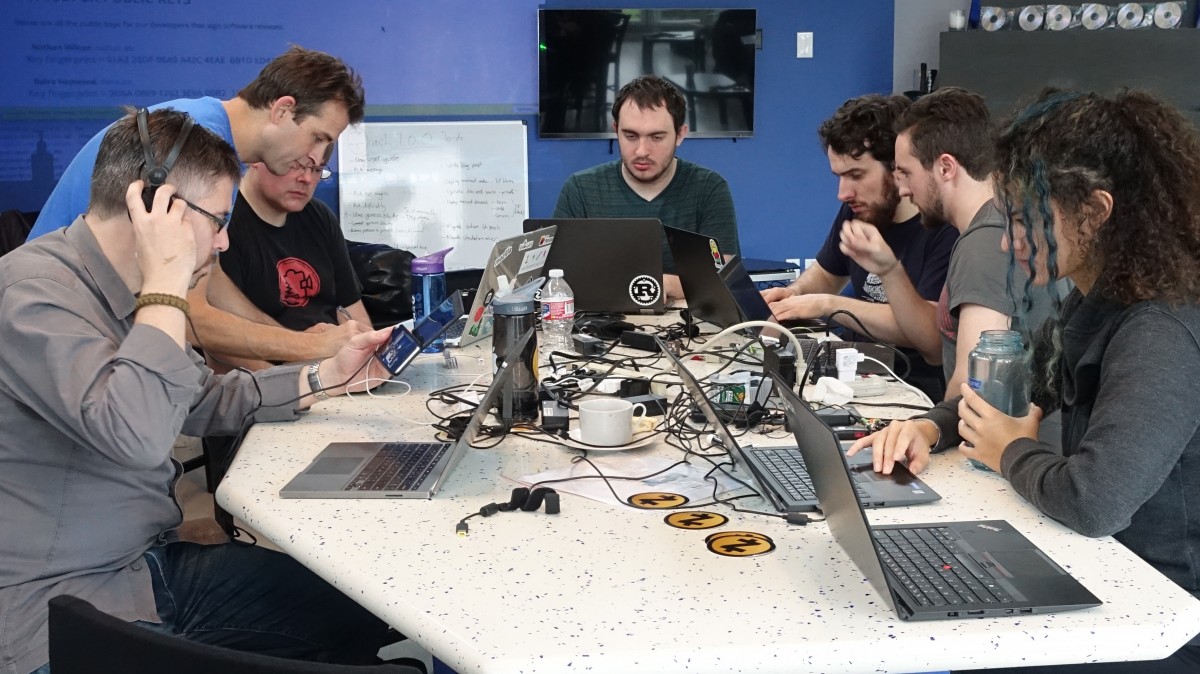
canadian_aaron
20:59:51
Learning to Make All Voices Count: Localising the Open Government Partnership - Making All Voices Count - Learning to Make All Voices Count: Localising the Open Government Partnership - Making All Voices Count
http://www.makingallvoicescount.org/blog/learning-make-voices-count-localising-open-government-partnership/
http://www.makingallvoicescount.org/blog/learning-make-voices-count-localising-open-government-partnership/
Making All Voices Count
An increasingly compelling body of evidence suggests that governance reform is inherently political and complex (see, for example, Halloran 2014; Menocal 2013; Levy 2011; and the 2017 World Development Report). There are no one-size-fits-all solutions to governance challenges, no blueprints for reform that can be imposed by external actors, or transplanted wholesale from one context …
canadian_aaron
21:02:01
How do open data measurements help water advocates to advance their mission? – Open Knowledge International Blog
https://blog.okfn.org/2017/11/23/how-do-open-data-measurements-help-water-advocates-to-advance-their-mission/
https://blog.okfn.org/2017/11/23/how-do-open-data-measurements-help-water-advocates-to-advance-their-mission/
Open Knowledge International Blog
This blogpost was jointly written by Danny Lämmerhirt and Nisha Thompson (DataMeet). Since its creation, the open data community has been at the heart of the Global Open Data Index (GODI). By teami…
canadian_aaron
21:02:42
Pin it in the Parks: Crowdsourcing park facilities information in Dublin – Open Knowledge International Blog
https://blog.okfn.org/2017/11/24/pin-it-in-the-parks-crowdsourcing-park-facilities-information-in-dublin/
https://blog.okfn.org/2017/11/24/pin-it-in-the-parks-crowdsourcing-park-facilities-information-in-dublin/
Open Knowledge International Blog
Since 2015 Open Knowledge International has been part of the consortium of RouteToPA, a European innovation project aimed at improving citizen engagement by enabling meaningful interaction between …
2017-11-25
canadian_aaron
04:40:11
The data commons: What lies ahead for the Mekong region? | Mekong Commons
http://www.mekongcommons.org/the-data-commons-what-lies-ahead-for-the-mekong-region/
http://www.mekongcommons.org/the-data-commons-what-lies-ahead-for-the-mekong-region/
mekongcommons.org
More kinds of data are now available and accessible especially in developing countries. However, open accessibility and ease of sharing is not always possible in the countries of the Mekong region, where governments take care to guard data and information from reaching the public. Lan Nguyen explores the future of open data sharing in the Mekong region and the obstacles that remain in place.
lee
17:06:12
@lee has joined the channel
angie
17:07:25
@angie has joined the channel
hlb
17:08:00
@hlb has joined the channel
caasi
17:08:07
@caasi has joined the channel
2017-11-26
canadian_aaron
09:38:09
new7.com.tw
更改台灣時區、禁止五星旗公開懸掛兩件提案連署達標,讓公共政策網路參與平台最近爆紅,政府服務人民的政策有限,民眾的點子無限,參與平台是我國首次利用網路,由民眾提供提議的機制,希望有助政府與民眾雙向交流與政策溝通。
au
10:32:13
PDIS 公開討論區
2017 年 11 月 24 日舉行時區案協作會議,就媒體及外界高度關注的「調整時區為 GMT+9」案進行討論。附議人坦承,他認為大部分支持時區者,最主要仍是希望能透過時區調整,讓世界上其他國家能了解台灣與中國大陸的差異;而反對案的附議人雖認為時區調整無法達到此目的,但亦認同台灣應與中國大陸做出差異。最終議題討論如何讓世界看見台灣與中國大陸的不同,雙方均對此感到滿意。 正反雙方於平台上各自提案 引發媒體關注 2017 年 10 月 16 日,網友 Yohan Ting 於公共政策參與平台提出「我國應調整時區至 GMT+9」的提案,並認為此舉「可象徵性的脫離中國的從屬,讓到台灣的陸客或是外國旅客淺意識體會到台灣與中國大陸的互不相從屬關係」。提案於 19 日達標後,經過媒體報導,平台上陸續出現「反對調整時區」、「維持時區於 GMT+8」等多個提案。其中網友水鏡八奇的提案「我國應維持 GMT+8 時區,反對調整時區至 GMT+9」,認為改變時區的作法可能影響民眾作息外,對於讓大眾理解台灣與中國大陸的不同方面並沒有太多幫助,因此不希望更改時區。短短兩天,反對更換時區一案亦達到門檻,因此兩...
- 👍2
2017-11-28
canadian_aaron
13:08:42
g0v.news
The FCC won’t let net neutrality be, the 2017 Freedom on the Net rankings, the World Bank reflects on open data, and much more!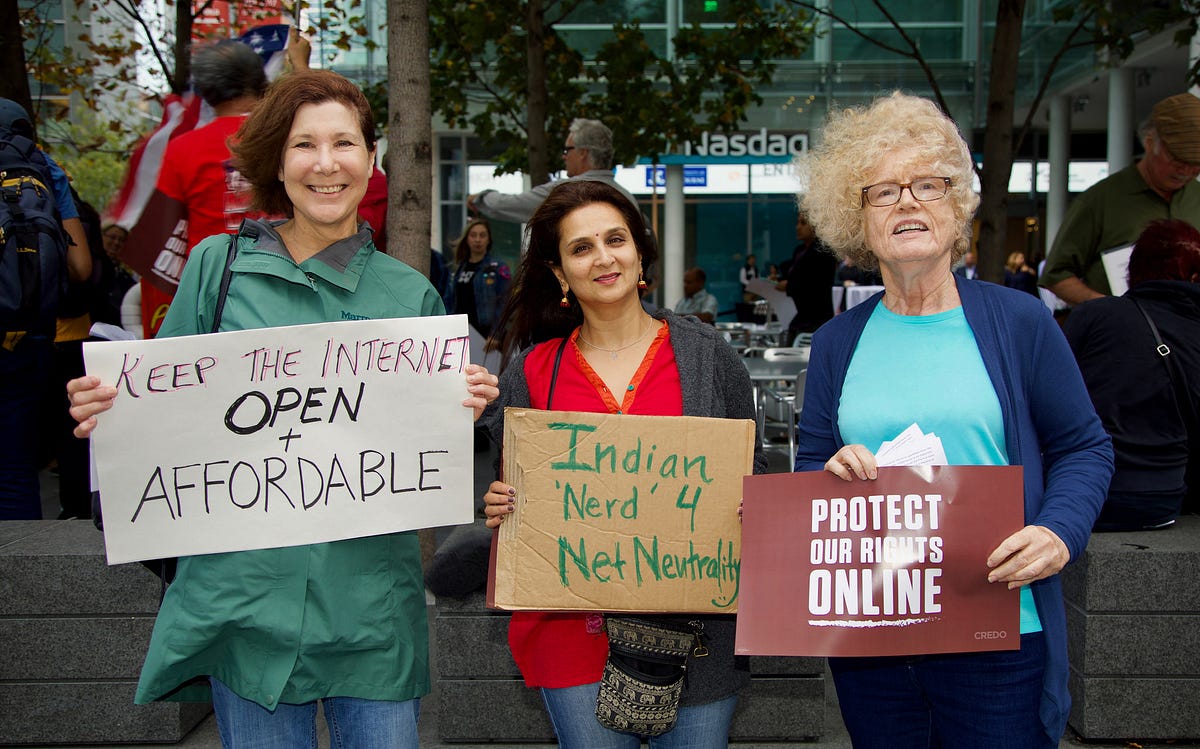
canadian_aaron
21:03:24
Hacker Noon
I used natural language processing techniques to analyze net neutrality comments submitted to the FCC from April-October 2017, and the…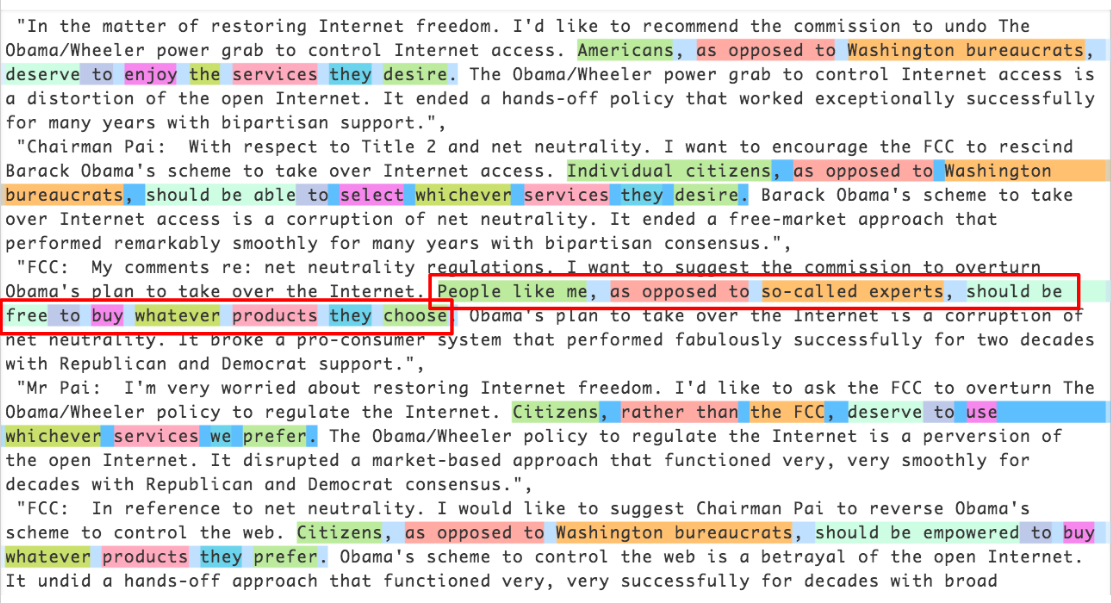
canadian_aaron
21:03:33
Hacker Noon
Help us build the first Citizens’ Network and feed the hungry. We’re donating $1 to the SF-Marin Food Bank for each Noodle! Coins App…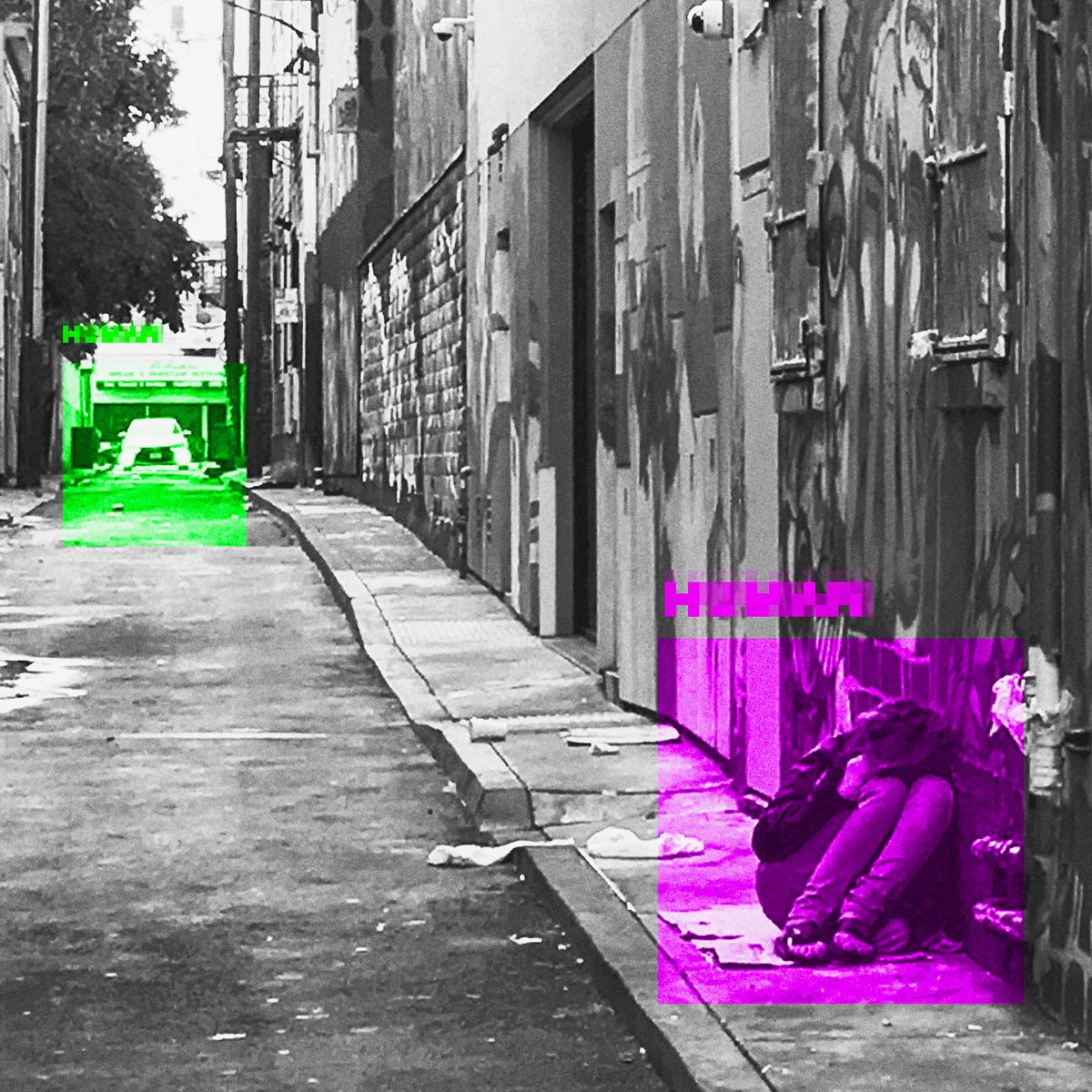
canadian_aaron
21:04:44
Making All Voices Count
An increasingly compelling body of evidence suggests that governance reform is inherently political and complex (see, for example, Halloran 2014; Menocal 2013; Levy 2011; and the 2017 World Development Report). There are no one-size-fits-all solutions to governance challenges, no blueprints for reform that can be imposed by external actors, or transplanted wholesale from one context …
canadian_aaron
21:07:39
Open Knowledge International Blog
Since 2015 Open Knowledge International has been part of the consortium of RouteToPA, a European innovation project aimed at improving citizen engagement by enabling meaningful interaction between …
canadian_aaron
21:07:48
Open Knowledge International Blog
Open Knowledge International coordinates the Open Data for Tax Justice project with the Tax Justice Network, working to create a global network of people and organisations using open data to improv…
canadian_aaron
21:08:24
Socrata, Inc.
Code4PA was Pennsylvania's first state hackathon to bring together government, academia, businesses, and citizens alike.
canadian_aaron
21:11:11
Ars Technica
The accused hacked 3 multinational corporations in pursuit of intellectual property.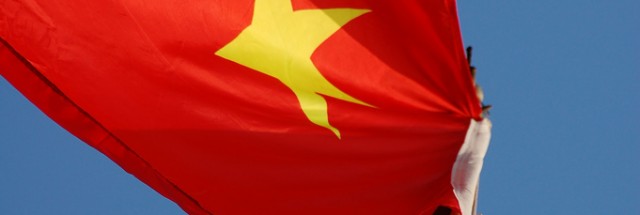
canadian_aaron
21:13:25
govtech.com
Plus, Connecticut’s chief data officer ponders value of network for state CDOs, Philadelphia releases police complaints data set, Code for America adds Sacramento to list of counties eligible for its food assistance app, and newly launched 500 Cities Data Challenge asks for cross-sector project ideas.
canadian_aaron
21:14:14
Medium
On Wednesday November 22, FCC Chairman Ajit Pai published his draft order outlining his plan to undo the net neutrality protections that…
canadian_aaron
21:16:22
Sunlight Foundation
As Sunlight continues to catalogue conflicting presidential conflicts of interests, we’re driven by a collaborative vision that includes amplifying the great accountability reporting we see on social media and on our blog to bring attention to major developments. Here are some of the projects we’re
canadian_aaron
21:16:39
The Citizen Lab
South Korea requires minors to have content filtering apps installed on their phones. A security audit of two child monitoring apps published by major Korean telecoms —KT Olleh Kidsafe and Clean Mobile Plus—finds serious security and privacy issues that put children at risk.
canadian_aaron
21:17:38
mySociety
mySociety is a not-for-profit social enterprise that exists to invent and popularise websites and apps that enable citizens around the world to exert power over institutions and decision makers.
yurenju
22:21:35
@yurenju has left the channel
2017-11-29
canadian_aaron
00:53:37
Shareable
After the breakthrough of the internet, Yochai Benkler, a law professor at Harvard University, quickly understood that new online forms of collaboration such as Wikipedia or Linux responded to a completely new economic logic. Specializing in the digital culture of the networked society, Benkler worked on a coherent economic vision that guides us beyond the old opposition between state and markets.
wumini
15:41:41
g0v.news Issue8的初稿來囉,歡迎大家提供你看到的資料,或是一起票選你覺得最重要的top7新聞。謝謝!
https://docs.google.com/document/d/1v9YDE344QJveDC3pwlJ_NOKy7dTIWagdwZpYpK_pRME/edit?usp=sharing
https://docs.google.com/document/d/1v9YDE344QJveDC3pwlJ_NOKy7dTIWagdwZpYpK_pRME/edit?usp=sharing
ttcat
15:53:32
@wumini ++ 英文版的還像是用日期不是用編號,這樣好像比較好?要不要統一一下標題
wumini
2017-11-29 16:02:17
好,我們討論一下哪樣呈現比較好,然後兩邊統一
wumini
16:02:17
好,我們討論一下哪樣呈現比較好,然後兩邊統一
2017-11-30
canadian_aaron
04:05:24
CitizenLab
Here are the results of the Burger Kabinet & Cabinet Citoyen projects: Flemings and Walloons agree about Brussels ; more than you would think!
canadian_aaron
04:08:42
Open Knowledge International Blog
Open Knowledge International coordinates the Open Data for Tax Justice project with the Tax Justice Network, working to create a global network of people and organisations using open data to improv…
canadian_aaron
06:08:49
I’ve added a couple more items to the issue 8 doc
canadian_aaron
06:09:06
Most of the US websites were closed for thanksgiving, so there isn’t as much news this week.
canadian_aaron
06:09:24
i think our engagement was low this Monday because of the long holiday.
canadian_aaron
06:09:45
I will be 15 minutes late for today’s meeting. Sorry about this 😞
mglee
22:07:14
m.ltn.com.tw
行政院長賴清德今天主持院會,拍板「政治獻金法修正草案」,為強化政治獻金的公開透明,避免金錢與政治權力的不當勾稽,修法明定未來個人與企業捐贈政治人物政治獻金的明細,都要強制上網公開。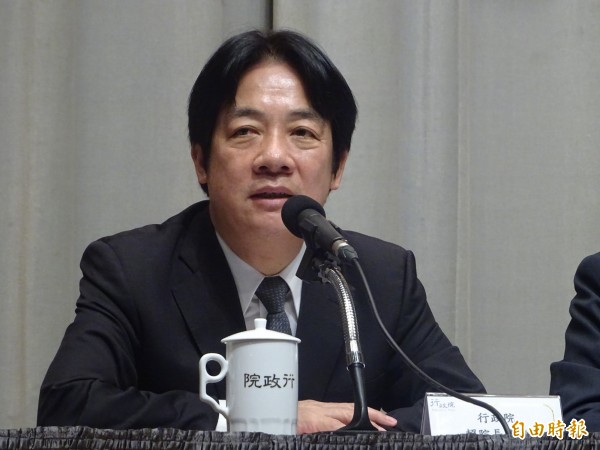
- 👍2
- ☀️2